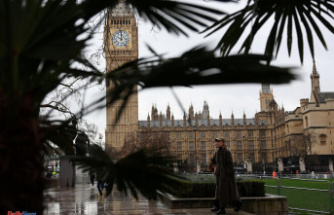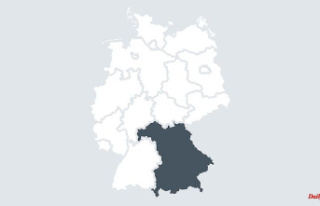In the media, the sad spectacle becomes daily in summer: glowing flames devour European forests. Last week, Spain, Portugal and France were on the front line. In turn, Greece and Slovenia are trying to tame the embers. This Sunday, Athens is fighting three major forest fires in the north, south and east of the territory and fears new disasters due to the heat wave that is hitting the country. In eastern Europe, in Slovenia, a thousand firefighters continue to fight a fire that burned more than 2,000 hectares on Thursday evening and caused the temporary evacuation of hundreds of residents.
To manage these disasters, European countries have different means, more or less important. Let's start with France: its fleet is made up of 21 planes and 35 helicopters. This is indicated in the Senate information report on the matter, submitted at the end of September 2019. In detail, the State owns "25 aircraft", including 12 Canadairs CL 415 with a water load ranging from up to 6,000 liters. It should be noted that the flight hour of a Canadair "comes to about 16,000 euros", specifies a Senate information report dating from 2004. To this are added six operational Dash 8s which can carry up to 10 tons retardant products and 3 Beechcraft planes used for various routes.
If it was declared by the authorities that France was "the first European fleet in terms of flying machines to fight against fires", Italy has a fleet of 16 Canadairs CL 415, which is more than France. But a nuance must be made: our transalpine neighbors do not own water bomber planes and "have thus chosen to rent flight hours from time to time to private companies, but this option does not prove to be less expensive than after the people heard", specifies the information report on the question.
Regularly subject to forest fires, Spain seems to outplay France, enjoying a larger fleet. Madrid has 18 Canadairs - according to the Spanish government website - of different capacity. For its part, Greece had 20 Canadair brand aircraft in 2020, including seven CL-415s and thirteen CL-215s, according to the European Commission's report entitled "Forest fires in Europe, the Middle East and in Africa". But unlike France, the Spanish and Greek aircraft are not registered in a "civilian" but military fleet.
Like Croatia, their air fleet is used as part of their armies, unlike France or Italy where it is civilian aircraft. The difference ? Outside periods of forest fires, resources and crews are called upon by the Air Force. Consequence: they are less available. Other European countries are also equipped with Canadair such as Croatia. Asked how many firefighting planes Croatia has, authorities said there are four Canadair planes and three Air-Tractor planes available. They have a tank of 3,000 liters of water.
Because of its high cost, very few European Union countries have Canadair in their national fleet, resulting in a heterogeneous distribution across the territory. Less affected by the fires, Germany and Belgium have none. In order to relieve the States and compensate for the lack of equipment, the European Union therefore developed, in 2019, a civil protection mechanism: RescEU. "Croatia, France, Greece, Italy, Spain and Sweden have set up a reserve of 12 aircraft and 1 water bomber helicopter which are made available to other EU Member States in case of emergency", underlines the European site.
These capabilities are expected to increase due to climate change, with the EU planning to invest in crisis response aircraft, said EU Commissioner for Crisis Management Janez Lenarcic. The use of these planes and this helicopter is decided jointly by the Commission and these Member States. This European mechanism was activated to counter the fires in Gironde. Currently, the RescEU provides Slovenia with three firefighting helicopters (one from Austria, one from Croatia and one from Slovakia) and one Croatian forest firefighting team.
This tool complements the European Civil Protection Mechanism (MEPC), which was created in 2001 at the instigation of the European Commission. This now includes all the countries of the European Union, as well as six other nations (Iceland, Norway, Serbia, North Macedonia, Montenegro and Turkey). When a country is overwhelmed in its response capacity by the scale of a disaster, it can request assistance through this mechanism. Since its creation, it has been activated more than 600 times.
At the same time, the European Union also recommends sharing practices between countries. The idea being that countries with a culture of fire - Portugal, Spain, Italy - pass on their knowledge of fire management. In Tuscany, a region containing the largest wooded area in all of Italy, the authorities are working more and more on "firewise communities". These are fire communities that provide a framework for local residents to prepare to stay and defend themselves in the event of a wildfire.
Pointed out during the 2017 fires, the Portuguese authorities are banking on major prevention: in 2020, the Iberian country launched the "Portugal Chama" (Portugal is calling you) campaign, in order to make individuals responsible in the face of the risk of forest fires. The campaign is broadcast in all national media. In parallel, the government is installing the "Safe Village" and "Safe People" programs which aim to establish measures in the villages so that people are more aware of fires and have better reflexes.
But the most experienced in this area remain the United States, which regularly has to deal with climatic disasters. On Friday, the "Oak Fire" - described as "explosive" by authorities - broke out in Mariposa County in California. It has already moved on some 4,800 hectares, destroying ten properties and damaging five others, according to a bulletin issued Saturday by the California Department of Forestry and Fire Protection. Asked by the American media The Los Angeles Times, a former firefighter said: "Mother Nature upsets us." And it's not over.












